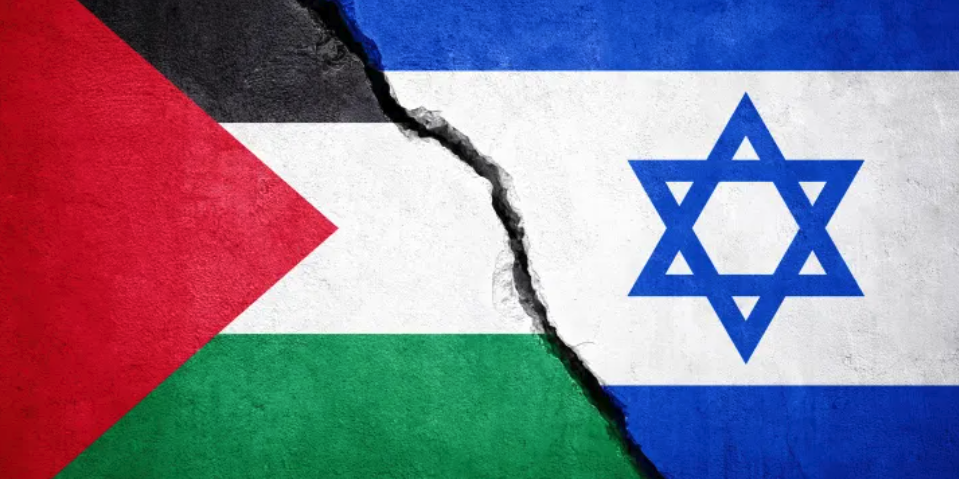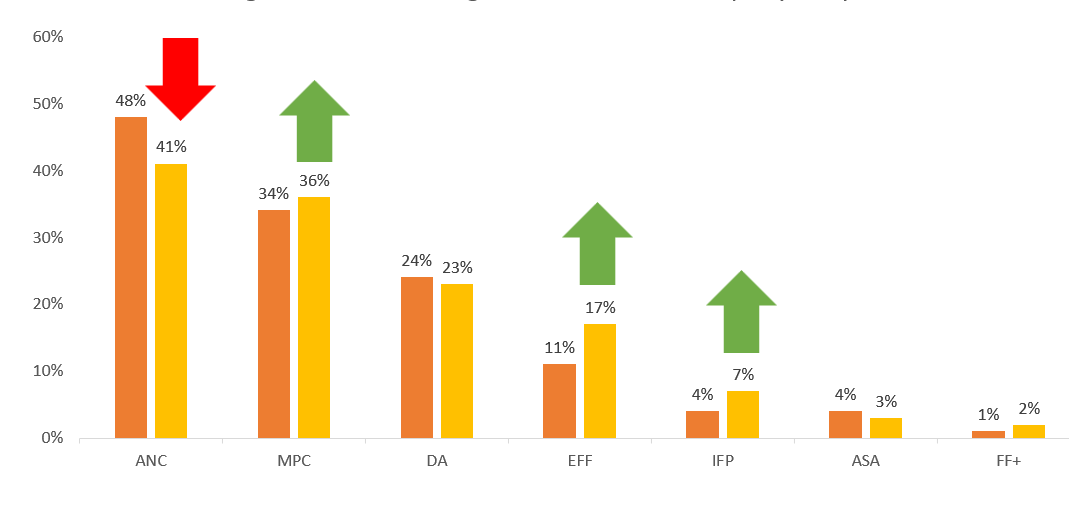News
Israel, Hamas and South Africa – The Biggest Failure of All
A role in mediation demands at least a perception of impartiality. Given Pretoria’s consistent partiality towards the Palestinians over Israel, it would do best to remain schtum rather than posture on peace.

Director, The Brenthurst Foundation

Research Director, The Brenthurst Foundation

The most startling aspect of the current conflict between Hamas and Israel is not the evidence that the strategy of Prime Minister Bibi Netanyahu’s various governments towards the Palestinians has failed, not least given the barbarity of the recent Hamas attack.
It is not the way in which the tragic loss of hundreds of lives in a missile strike on a Gaza hospital has become the subject of claims and counterclaims by Hamas and the Israeli Defence Force, with the truth impossible to fathom.
It is also not to do with the operational security failures that led to Hamas’s outrages.
It is not even the cold-blooded killing of Israeli citizens, since this is standard Hamas operating practice, though the scale this time is shocking even for a region numbed by scenes of deprivation and loss of life.
It is not the crushing Israeli response by air and, now, likely by land and sea. Previous Israeli reactions made this predictable just as the housing of Hamas facilities in civilian areas, hospitals and schools ensures that civilian loss of life is inevitable.
It is not that this was most likely designed to spark a wider regional conflagration, the reason President Joe Biden has warned other nations – read Iran – not to attempt to profit from the imbroglio.
“To any country, any organisation, anyone thinking of taking advantage of the situation, I have one word: Don’t. Our hearts may be broken but our resolve is clear,” said the US president.
It is not that Israel’s actions in Gaza can deliver much beyond a sense of vengeance since wiping out Hamas is going to be hard, nay, impossible.
As Ehud Barak, Bibi’s political nemesis and a former general, argues, the notion of destroying Hamas is folly even though he supports a ground campaign in Gaza.
“What does it even mean?” he asks. “That no one can still breathe and believe in Hamas’s ideology? That’s not a believable war aim. Israel’s objective now has to be clearer. It has to be that Hamas will be denied its Daesh-like military capabilities,” he says, employing the Arabic term for Isis.
It is also not that the Israelis will attack Hamas, even though the Islamic organisation does not pose an existential threat to Israel – and even though the Israeli reaction risks undoing Netanyahu’s policy of dividing and ruling the Palestinians between Gaza under Hamas rule and the West Bank under Fatah’s government, and weakening his assiduously developed Middle East strategy, drawing the Emirates and Saudis closer to Israel.
It is not, also, the failure of Palestinians themselves to enthusiastically build a system of governance beyond supporting a war machine.
When the opportunity to achieve peace arose during the Camp David negotiations in 2000, for example, Yasser Arafat refused to grasp the opportunity to win the peace, preferring to be remembered as the historic figure who delivered the Palestinians from the political wilderness with a pistol in his belt than the leader who delivered a state.
As Barak, who headed these negotiations on the Israeli side as prime minister, told us in an interview in July 2022: “I cannot speak for Arafat. We sat together with Clinton, we put on the table a proposal that covered probably 90% of whatever he can think of and didn’t try to dictate it. We never told [Arafat] take it or leave it. We just asked him to take it as a basis for negotiation. The fact that he rejected it tells you that they were not ready for whatever reasons.
“He probably was afraid of the kind of more grey area of daily life in a new Palestinian entity. Instead of being a heroic figure for his nation, he might have to dive into education and social security and sewage, you name it. Or probably he just thought that nations should be born in blood, not in negotiated agreement which happens in air-conditioned rooms.”
It’s not even that the ANC government has attempted to make some sort of moral equivalence between Hamas and Israel, failing in the process to differentiate between a liberation movement and a nihilistic terrorist organisation.
Instead, it prefers to describe Israel as “genocidal”.
As it noted in the NEC press statement of 16 October, “We have also witnessed the unprecedented escalation of the conflict between Israel and Palestine. The ANC NEC has condemned, in strongest terms, the brutal killing of civilians by Hamas. The ANC has also been perturbed by the genocidal and atrocious activities of the State of Israel which are being directed indiscriminately at Palestinian citizens, shutting them off from all means of livelihoods.”
It’s not that the ANC takes a one-eyed view of the reasons for the conflict.
Ramaphosa’s statement
Speaking publicly following the NEC meeting, Ramaphosa empathised with the manner in which the Palestinians “have taken up this issue” since “they have been under occupation for almost 75 years, and people under occupation who have been waging a struggle against an oppressive government that has occupied their land, but also a government that has in recent times been dubbed an apartheid state.”
This view is hardly neutral and only rehashes the occupation/liberation trope.
And never mind the related failure of South Africa’s government to call the war in Ukraine what it is, a Russian invasion counter to international law, and now trying to play the victim of a conflict it has from the outset failed to condemn.
This, and the response to Israel, smacks more of political flavour and friendships than the norms of international relations.
No, the most startling aspect is that the South African government earnestly believes it is in a position to offer its mediation services to the warring parties. As the government’s press release of 7 October put it:
“South Africa therefore calls on all sides to seize the opportunity for peace as opposed to violence, and for the international community to actively rise on the side of its own international resolutions and establish a credible peace process.
“South Africa stands ready to share its experience in mediation and conflict resolution as it has done on the continent and around the world.”
No mention is made of the fact that South Africa is one of four places in the world to host a Hamas representative office – the others being in Gaza, Iran and Qatar.

This unusual access might put SA in a good position to play a brokering role, but only if it is viewed as a credible interlocutor by Israel, which is not the case given its clumsy pronouncements.
A role in mediation demands at least a perception of impartiality. Given Pretoria’s consistent partiality towards the Palestinians over Israel, it would do best to remain schtum rather than posture on peace.
And then there is the small matter of SA’s experience in conflict mediation, so assiduously mythologised by the ANC.
Such a role fundamentally presumes that the country has been a success since 1994. It might have had a reasonable first half, but the second half of the past 30 years has been simply dreadful. The economy is stuck, debt is ballooning, basic services are crumbling, and post-apartheid dreams are in tatters, except for a party-linked elite.
While Pretoria expresses its concern about the loss of life in and around Gaza, the average of 1,000 deaths a year in the war between Gaza and Israel since 2008 pales by comparison to the rate of South African murders, which reached 27,000 in 2022.
To take another example, that number is more than four times the civilian casualty total from Ukraine last year, a country in the middle of a full-fledged conventional war in which civilians are deliberately targeted.
The trouble with South Africa’s position is that it appears to be supporting the perpetrators of terror.
Hamas certainly believes it has South Africa’s backing, saying its senior leader, Ismail Haniyeh, received a call from International Relations Minister, Naledi Pandor, backing its assault on Israeli civilians.
Pandor has since issued a statement to “clarify the content of her discussion with the leader of Hamas,” saying she “expressed sadness and regret for the loss of innocent lives both Palestinians and Israelis”. She denied supporting Hamas’ terror attack on Israeli civilians.
Precisely because of its longstanding support for the rights of the Palestinians for a state, the SA government and the ANC should update its position and make a clear distinction between Hamas and the Palestinian Authority (PLO), the former which has a clear religious and racist ideology, the other the goal of a Palestinian state.
It is said that peace begins with you. Questions of impartiality and neutrality aside, the SA government apparently remains blithely unaware that it is hardly the success that others should wish to emulate.
For this, and many other reasons, South Africa would do best in the circumstances to remain silent.
This article originally appeared on the Daily Maverick
Photo: iStock

